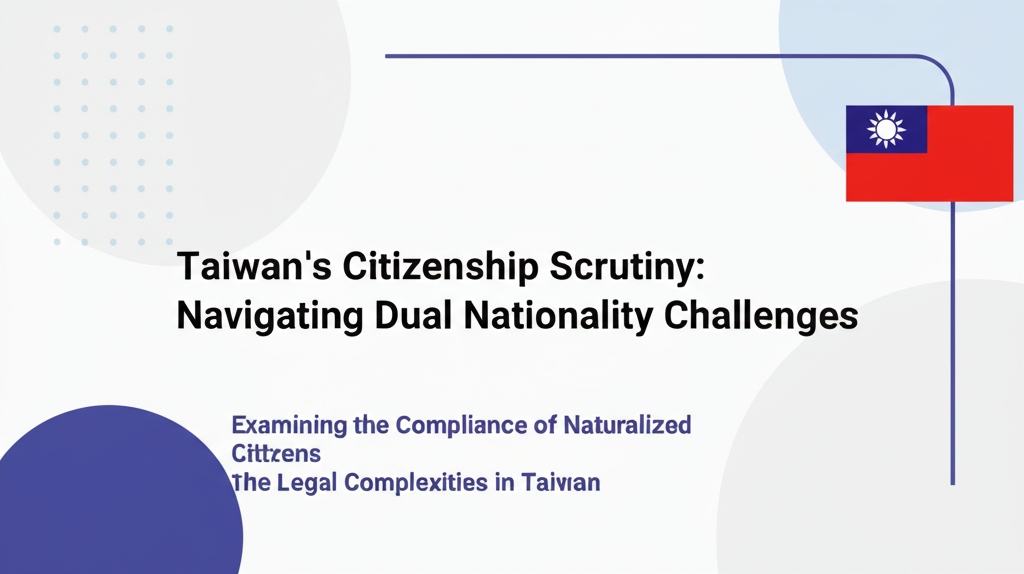Taiwan's Citizenship Scrutiny: Navigating Dual Nationality Challenges
Examining the Compliance of Naturalized Citizens and the Legal Complexities in Taiwan

Recent discussions at the Legislative Yuan in Taiwan have brought into focus the issue of naturalized citizens and compliance with the nation's citizenship laws. The National Immigration Agency (NIA) revealed that over 10,000 naturalized Taiwanese citizens, originally from China, have not provided proof of renouncing their Chinese citizenship, as required by law.
This revelation came shortly after the NIA issued a press release concerning warnings issued to a minority of Chinese-born naturalized citizens who had failed to submit the necessary documentation to prove they do not hold dual citizenship. The timing of these actions sparked questions from lawmakers, including Democratic Progressive Party (DPP) Legislator Chuang Jui-hsiung (莊瑞雄), who inquired whether the government's actions were connected to the recent deportation of three Chinese-born influencers who had expressed support for China's use of force against Taiwan.
NIA Deputy Director-General Chen Chen-cheng (陳建成) clarified that the notices were issued without any political motivation and predated the controversy surrounding the influencers. He also addressed the broader context, outlining the legal framework established in 2004, which mandates that naturalized citizens born in China legally renounce their Chinese citizenship.
Chen reported that while the number of non-compliant immigrants is substantial, it represents a minority compared to the total of 140,000. The NIA has already revoked the citizenship of 676 Chinese immigrants. He attributed the non-compliance primarily to issues with paperwork and health problems related to the COVID-19 pandemic.
Mainland Affairs Council (MAC) Deputy Minister Liang Wen-chieh (梁文傑) further clarified that the amendments also affect those who obtained citizenship through marriage before 2004. He added that the MAC is addressing complaints from Chinese spouses, including those considered reasonable.
The discussion extended to the political spectrum, with DPP caucus chief executive Rosalia Wu (吳思瑤) expressing support for government actions within the bounds of the law, but also suggesting that the practical implementation of the law should be open to negotiation. DPP Legislator Huang Jie (黃捷) emphasized that Chinese nationals obtaining Taiwanese citizenship are required to renounce their citizenship and household registration in China within six months of the law's enactment. She advocated for the protection of the lawful rights of immigrants facing difficulties in obtaining necessary documentation.
In contrast, Chinese Nationalist Party (KMT) caucus whip Fu Kun-chi (傅?萁) argued that enforcing immigration offenses that may have occurred two decades ago, past their statute of limitations, violates human rights. He urged the government to focus on addressing pressing economic issues rather than what he perceived as an internal political witch hunt.
